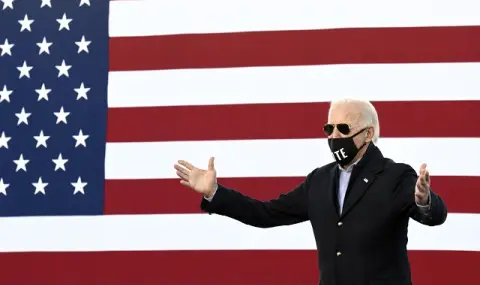Following the drone attacks on Israel, the EU and the US tighten sanctions you are against Tehran. US President Joe Biden has been accused of not applying them consistently. Are these accusations justified? DV checked the facts:
Since the revolution in 1979, Iran - the country with the world's largest reserves of crude oil and gas - has repeatedly been subject to sanctions. In 2012, for example, the US and the EU imposed an oil boycott on it because of its nuclear program. Because of the drone attacks against Israel, the US and the EU tightened their sanctions against Tehran again. How were the numerous sanctions implemented?
The UN and US arms embargo
Claim: “Biden has agreed not to renew UN sanctions against Iran's drones and ballistic missiles,” tweeted American television commentator Morgan Ortagus, who served as the US State Department spokesman under President Trump from 2019 to 2021 year.
Fact Check: False
The UN arms embargo against Iran expired before the start of President Joe Biden's term on October 18, 2020. Biden took office on January 21, 2021.
The embargo ended exactly five years to the day the international agreement on Iran's nuclear program, known as the Joint Comprehensive Plan of Action (JCPOA), was adopted. As part of the agreement, on July 20, 2015, the UN Security Council decided that the strict UN arms embargo against Iran, in place until then, should be eased.
However, the relief was to be granted only after the International Atomic Energy Agency (IAEA) confirmed to the UN Security Council that Iran had taken the JCPOA measures regarding its nuclear program.
Under the Trump administration, on May 8, 2018, the US withdrew from the international nuclear deal with Iran. On August 6, 2018, the US reimposed sanctions on Iran, which were lifted under the deal. In September 2020, then US Secretary of State Mike Pompeo said that sanctions against Iran imposed by the UN Security Council would be reinstated.
However, this did not happen. On August 26, 2020, the UN Security Council had already blocked the relevant US initiative on the grounds that the US had unilaterally withdrawn from the JCPOA and was therefore not authorized to propose amendments. Since then, the US has repeatedly tightened its own sanctions against Iran.
Suspension of sanctions for humanitarian reasons?
Claim: “Since taking office, Biden has made direct payments to Tehran and eased sanctions. "Iran used this money to attack Israel," a Twitter user fumed. US Republican Congressman Brian Steele also wrote: “President Biden has extended sanctions relief that gives Iran access to tens of billions of dollars. At the same time, Iran is enriching uranium to near-nuclear levels, and its proxies are killing our soldiers with missiles.
Fact Check: Misleading
It is true that Joe Biden has ordered the lifting of sanctions several times during his tenure. Here are some examples:
In February 2022, Biden sought to facilitate indirect US-Iran talks to revive the 2015 international nuclear deal with “sanctions lifting” for Russian, Chinese and European companies.
In July 2023, US Secretary of State Anthony Blinken announced the release of Iranian assets in Iraq after a meeting with his Iraqi counterpart Fuad Hussein in Riyadh. This allowed Iraq to pay off some of its billions in natural gas debt to Iran.
In August 2023, President Biden granted the regime in Tehran access to approximately six billion US dollars in foreign currency. The money was held in a blocked bank account in South Korea. In return, Iran released five American hostages.
In March of this year, the US government again gave Iran access to ten billion US dollars. “These funds, set aside by the way in an account by the Trump administration, do not go directly to the supreme leader of the Iranian Revolutionary Guard, but can only be used for humanitarian purposes”, John Kirby explained.
Sanctions expert Claude Rakisitz disagrees. He is convinced that “suspension of sanctions has made it easier for Tehran to produce and buy weapons”.
Arms exports and growth despite sanctions
Claim: “Sanctions against Iran do not make sense if they do not include China”, German-Iranian TV journalist Nathalie Amiri wrote on Twitter. Other users even described the sanctions as “completely pointless” as they are not effectively enforced.
Fact Check: True
Sanctions slow growth, reduce investment and increase unemployment and poverty. The development of gross domestic product per capita since 1979 illustrates the setbacks that Iran has suffered as a result of the punitive measures. In 2020, for example, GDP fell to 2,700 US dollars, the same as it was in 2004. Despite international punitive measures, the country's economy has not bottomed out.
“Economic growth has proved resilient over the past four years despite ongoing sanctions and heightened geopolitical uncertainty,”, according to a World Bank analysis.
Other sanctions experts confirm this assessment. "Western sanctions against Iran's drones and weapons have not worked because Tehran gets the weapons or components for them from elsewhere," explains Claude Rakisits of the Center for Security, Diplomacy and Strategy (CSDS) in Brussels. Supplies come mainly from China, North Korea and Russia. According to Rakisits, “there is an effective union between these four dictatorships”.
